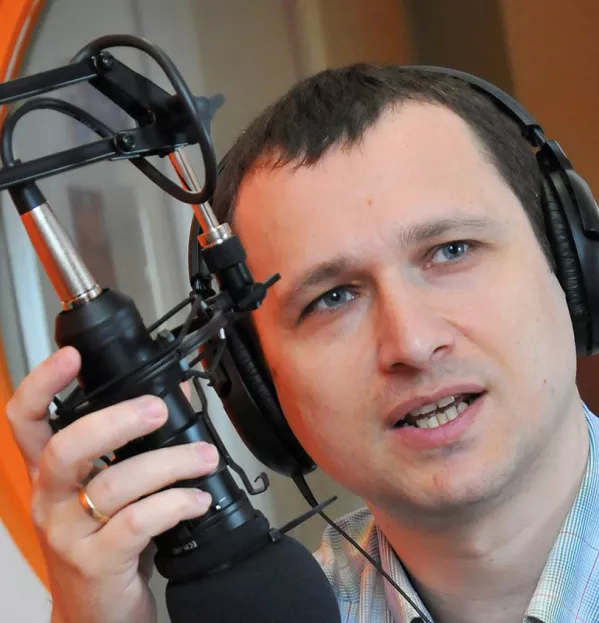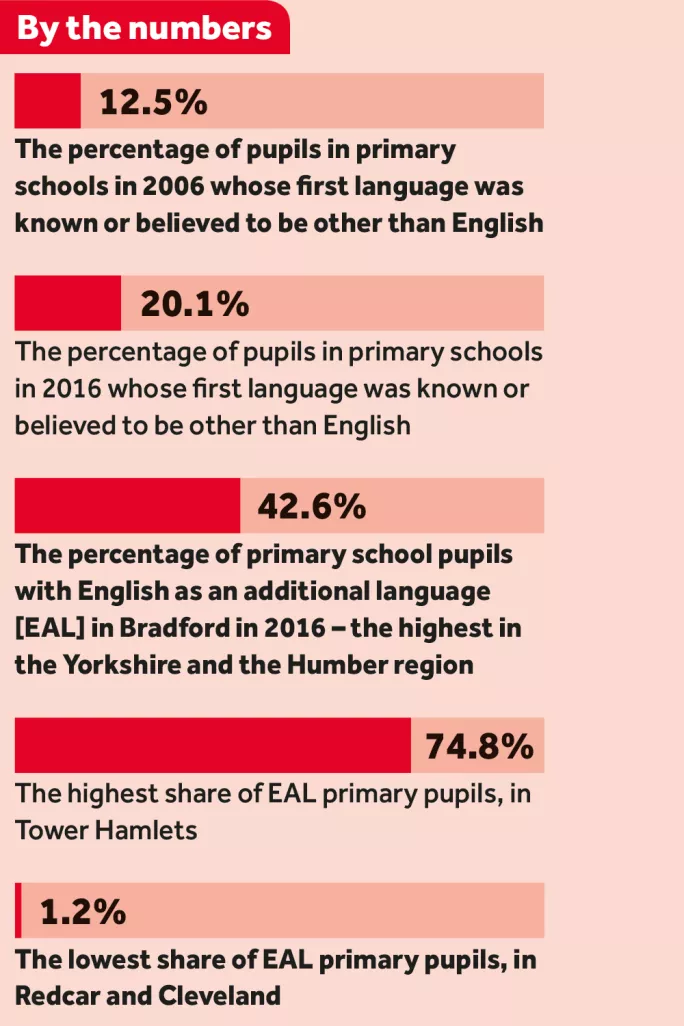Polishing up speaking skills through the power of radio

Roam around Miriam Lord Primary School in Bradford and you’ll notice something unusual: the corridors and playgrounds are lined with speakers.
At lunchtime, they spring into life: one moment an Abba song is reverberating along the hallway; a few jaunty minutes later, it’s a news bulletin from a pupil about Theresa May’s triggering of Article 50.
But what comes next is perhaps most surprising: a man’s voice delivering a short message. Entirely in Polish. The voice belongs to Tomasz Turowski, a teaching assistant who has worked at Miriam Lord for 10 years.
For the last few weeks, the school has been broadcasting a short pre-recorded message from Turowski three times during the day: when parents drop their children off in the morning, at lunchtime and when the pupils are collected in the afternoon.
The broadcasts are designed to relay key messages to parents who hail from Eastern Europe and don’t speak English fluently. They came about because of a combination of three things: the purchase of some impressive kit, a pressing demographic challenge and, most importantly, Turowski himself.
First of all, the kit. Three years ago Miriam Lord invested in a new ICT suite, which included a recording studio with speakers dotted around the school.
Improving oracy
Bryan Harrison, Miriam Lord’s affable executive head, explains that the studio was about giving children a richer experience and improving their oracy.
“It’s an inner-city part of Bradford - we’ve tried to create something in school that can enhance the experiences that children have,” he says.
For three years, the school recorded a new 20-minute radio show each week based on what pupils were doing in the curriculum. Creative writing, book reviews and news bulletins all found their way into the shows, along with a constantly changing mixtape of topical music (Money, Money, Money marked the launch of a new pound coin in the week of Tes’ visit).
But as the radio show developed, something else was happening: the school was changing.
There’s a real changing demographic here, and I think that’s probably what led us to think we need to consider how we communicate and how we approach these families
Miriam Lord is based in Manningham, a predominantly British-Pakistani area of Bradford. When Harrison joined the school eight years ago, only 1.8 per cent of the school’s 450-odd pupils came from a different background (about eight children).
Now, the figure is 10 per cent - or about 45 children - and most of the newcomers are from an Eastern European background.
“There’s a real changing demographic here, and I think that’s probably what led us to think we need to consider how we communicate and how we approach these families,” Harrison says.
As the only member of staff able to speak Eastern European languages (Polish, Czech, Slovakian and some Russian, too), Turowski was often mobbed at the beginning and end of the day by parents who needed his translation skills. The solidly built Turowski worked for nine years in Poland as a prison officer (“a bit different” to being a TA, he laughs), prior to coming to Britain. Before that, he served two years in the army.
After being encouraged by head of school Steven Young to deliver the broadcasts, it was Turowski’s idea to speak in Polish. “We’ve got a few children from Poland, but also the Polish can be understood by the people from Czech Republic and from Slovakia,” he explains.
Every fortnight he translates key messages from the school newsletter - for example, news about an upcoming parents evening or an update about the importance of attendance - before recording the broadcast.
The Polish broadcast is refreshed every two weeks, although the accompanying content in English is updated each week.
Mixed social media response
Turowski says taking to the airwaves has helped build his confidence and brought down his workload. “The amount of parents who try to catch me after school reduced - which is quite nice,” he smiles.
Harrison says the broadcasts have been well received by Eastern European parents, while the non-Eastern European families haven’t been “bothered” by it.
However, outside of the school community, reaction on social media has been mixed. “The comments were, as you would imagine, a real mixture of ‘what a great idea!’ to ‘you’re in England, speak English - these people should be speaking English’,” he says.
Harrison doesn’t hide his frustration with what he calls “the ‘these people’ mentality”.
“These people are learning English and speaking English, but just not at the rate that allows them to understand the full intricacies of key messages,” he says.

The station is seen as part of the school’s duty of care to its pupils. But Harrison admits that weighing parental engagement against Miriam Lord’s status as a non-denominational British state school is a delicate balance.
Because Eastern European families have generally been in the country for less time than other foreign-born parents, they have the greatest language barriers. But the school has considered recording messages in other languages, too, such as Punjabi and Pushtu. “It’s a fine line for us, because we speak English,” Harrison says.
The red line is the classroom threshold: all the teaching is in English and will remain so.
In the meantime, Turowski’s broadcasts will continue. There’s just one downside for him - something many people have encountered when they get behind a microphone for the first time. “I don’t like my voice, I don’t like it at all!” he laughs.
You need a Tes subscription to read this article
Subscribe now to read this article and get other subscriber-only content:
- Unlimited access to all Tes magazine content
- Exclusive subscriber-only stories
- Award-winning email newsletters
Already a subscriber? Log in
You need a subscription to read this article
Subscribe now to read this article and get other subscriber-only content, including:
- Unlimited access to all Tes magazine content
- Exclusive subscriber-only stories
- Award-winning email newsletters